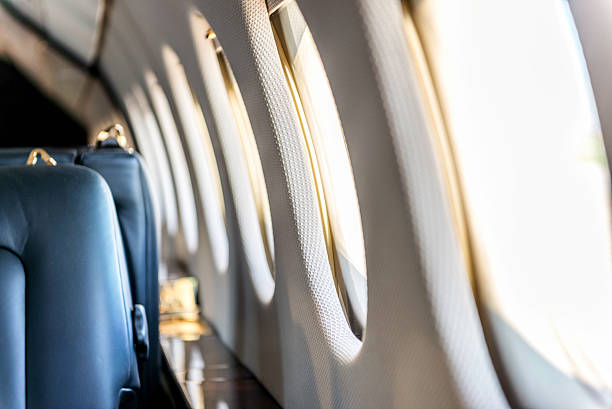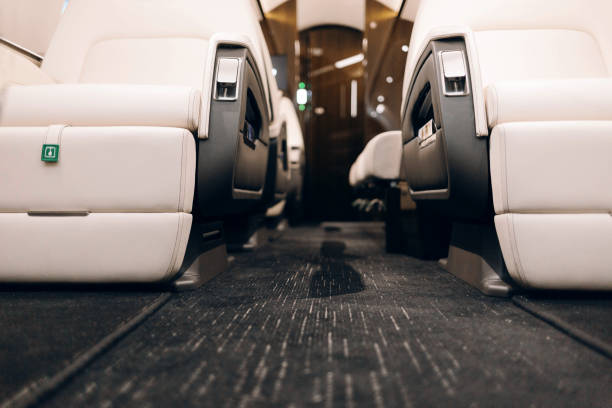Private Jet vs Air Freight: The Ultimate Guide to Time-Critical Transport Solutions

When every minute counts and your cargo absolutely must arrive on time, choosing between private jet transport and specialized air freight services can make the difference between success and costly delays. Whether you're shipping life-saving medical equipment, critical manufacturing components, or high-value goods, understanding the nuances of each transport method is essential for making informed logistics decisions.
Introduction: The High-Stakes World of Time-Critical Transport
In today's interconnected global economy, time-sensitive logistics have become increasingly crucial across multiple industries. From pharmaceutical companies rushing temperature-controlled vaccines to remote locations, to automotive manufacturers requiring just-in-time delivery of critical components, the demand for expedited air transport continues to grow exponentially.
The air cargo market reached USD 138.69 billion in 2023 and is projected to grow to USD 230.37 billion by 2032, expanding at a CAGR of 5.80%. Meanwhile, air cargo demand for 2024 increased 11.3% compared to 2023, exceeding the record volumes set in 2021. The private jet charter services market reached USD 16.38 billion in 2025 and is forecasted to reach USD 24.02 billion by 2030, securing a 7.95% CAGR.
Understanding Private Jet Cargo Transport
What is Private Jet Cargo Transport?
Private jet cargo transport involves using business aircraft specifically chartered for freight delivery rather than passenger transport. Through partnerships with FAA-certified operators, these specialized transport solutions range from light jets capable of carrying 1,000-2,000 pounds to large cabin jets that can handle up to 4,000 pounds of cargo, depending on the aircraft configuration and flight distance.
Key Advantages of Private Jet Transport
Unmatched Speed and Flexibility
Private jets offer the fastest door-to-door delivery times available in commercial aviation. Unlike scheduled cargo flights, private aircraft can depart immediately upon loading, eliminating the waiting periods associated with commercial schedules. Based on industry estimates, flight times are often reduced by 30-50% compared to commercial alternatives due to direct routing and priority air traffic control handling.
Access to Remote Locations
Private jets can access over 5,000 airports worldwide, compared to the approximately 500 airports served by major commercial cargo carriers. This capability is particularly valuable for reaching remote mining sites, offshore platforms, or underserved markets where commercial cargo services are limited or nonexistent.
Enhanced Security and Chain of Custody
High-value or sensitive cargo benefits from the enhanced security protocols inherent in private aviation. Items remain under strict supervision throughout the transport process, with minimal handling by third parties. This is particularly crucial for transporting precious metals, artwork, or classified materials.
Custom Loading and Handling
Private aircraft can be configured specifically for unique cargo requirements. Seats can be removed to maximize cargo space, and specialized equipment such as temperature control systems or shock-absorbing mounts can be installed as needed.
Limitations of Private Jet Transport
Cargo Capacity Constraints
Even the largest business jets have limited cargo capacity compared to dedicated freighter aircraft. A typical large cabin business jet can carry 3,000-4,000 pounds, while a Boeing 747-8F freighter can handle up to 308,000 pounds.
Cost Considerations
Private jet transport represents the premium tier of air cargo services, with costs often 3-5 times higher than expedited commercial air freight. Industry estimates suggest hourly operating costs for business jets range from $3,000 for light jets to $10,000+ for large cabin aircraft.
Commercial Air Freight for Time-Critical Shipments
Understanding Expedited Air Freight Services
Commercial air freight encompasses various service levels, from standard cargo services to specialized time-critical solutions. Major carriers offer same-day, next-flight-out, and charter services specifically designed for urgent shipments.
Next Flight Out (NFO) Services
NFO services place cargo on the next available commercial flight to the destination, regardless of carrier. This approach leverages the extensive commercial airline network, with over 100,000 commercial flights operating daily worldwide. NFO services typically guarantee delivery within 4-8 hours for domestic shipments and 12-24 hours internationally.
Dedicated Air Freight Charters
For larger shipments exceeding the capacity limitations of passenger aircraft cargo holds, dedicated freighter aircraft can be chartered. These range from small cargo aircraft like the Cessna Caravan (3,500-pound capacity) to massive freighters like the Antonov An-124 (330,000-pound capacity).
Advantages of Commercial Air Freight
Cost Efficiency
Commercial air freight offers significantly lower per-pound transportation costs compared to private jet services. Expedited commercial services typically cost 60-80% less than equivalent private jet transport, making them more accessible for larger shipments or budget-conscious shippers.
Extensive Network Coverage
Commercial airlines operate comprehensive global networks, with major cargo carriers serving over 220 countries and territories. This extensive coverage ensures reliable service to virtually any global destination with established airport infrastructure.
Specialized Handling Capabilities
Major freight carriers have invested heavily in specialized handling equipment and facilities. Temperature-controlled transport, hazardous materials handling, and oversized cargo capabilities are standard offerings at major cargo hubs.
Established Tracking and Documentation
Commercial freight services provide sophisticated tracking systems and established documentation processes. Real-time shipment visibility and comprehensive delivery confirmation are standard features that many businesses require for their logistics operations.
Limitations of Commercial Air Freight
Schedule Dependencies
Even expedited commercial services depend on existing flight schedules and available cargo space. During peak seasons or in the event of network disruptions, guaranteed delivery times may be compromised.
Limited Access to Smaller Airports
Commercial cargo services are concentrated at major hub airports, potentially requiring additional ground transportation to reach final destinations in remote areas.
Cost Analysis: Breaking Down the Numbers
Private Jet Transport Costs
Private jet charter rates vary significantly based on aircraft type, flight distance, and market conditions. Current market estimates include:
- Light Jets: $2,500-4,500 per hour
- Midsize Jets: $4,500-7,000 per hour
- Heavy Jets: $7,000-12,000+ per hour
For a typical 1,000-mile flight carrying 1,500 pounds of cargo, total costs range from $8,000-15,000, translating to $5-10 per pound.
Commercial Air Freight Costs
Expedited commercial air freight pricing follows different models:
- Same-day NFO services: $3-8 per pound domestically
- International expedited: $5-15 per pound
- Dedicated charter: $2-6 per pound (depending on aircraft size and load factor)
Cost Comparison Example
For a 2,000-pound shipment from New York to Los Angeles requiring same-day delivery:
- Private Jet: $18,000-25,000 ($9-12.50 per pound)
- NFO Commercial: $6,000-12,000 ($3-6 per pound)
Speed and Reliability Comparison
Transit Time Analysis
Private Jets: Door-to-door delivery times of 3-6 hours for transcontinental shipments, including ground handling and customs clearance.
Commercial Air Freight: NFO services typically achieve 6-12 hour door-to-door times domestically, with international shipments requiring 12-48 hours depending on routing and customs procedures.
Reliability Factors
Private jets maintain high on-time performance rates due to their flexibility in routing and scheduling. Commercial air freight reliability varies by carrier and service level, with premium expedited services achieving competitive on-time performance.
Industry-Specific Applications
Aerospace and Defense
The aerospace industry frequently requires immediate delivery of aircraft-on-ground (AOG) parts to minimize costly aircraft downtime. A single hour of commercial aircraft downtime can cost airlines $8,000-15,000, making expedited transport economically justified.
Private jets excel in this application due to their ability to reach smaller airports near maintenance facilities and their rapid deployment capability. However, for larger components, dedicated freight charters may be necessary.
Medical and Pharmaceutical
Time-critical medical transport includes organ transportation, emergency medical supplies, and temperature-sensitive pharmaceuticals. The global cold chain logistics market, valued at $18.6 billion in 2021, relies heavily on both private jet and specialized commercial air freight services.
Private jets offer advantages for organ transport due to their speed and ability to maintain strict chain of custody. Commercial freight services excel in pharmaceutical distribution due to their established temperature-controlled networks and regulatory compliance capabilities.
Oil and Gas Industry
Offshore oil platforms and remote drilling sites frequently require emergency delivery of critical equipment and supplies. Downtime in oil and gas operations can cost $50,000-200,000 per day, making expedited transport cost-effective.
Private jets provide crucial access to remote airstrips near drilling sites, while commercial freight services handle larger equipment shipments to regional hubs.
Automotive Manufacturing
Just-in-time manufacturing principles in the automotive industry create frequent demands for emergency parts delivery. Production line shutdowns can cost major manufacturers $20,000-50,000 per hour.
Both private jets and commercial expedited services play vital roles, with private jets handling critical low-volume parts and commercial services managing larger component shipments.
The ParaFlight Advantage: Expert-Driven Logistics Solutions
When selecting time-critical transport solutions, working with experienced aviation professionals makes all the difference. Our concierge approach connects you with FAA-certified operators who understand the unique requirements of your cargo and destination.
Our expert team evaluates each shipment based on:
- Urgency requirements and delivery windows
- Cargo specifications and handling needs
- Destination accessibility and airport capabilities
- Budget considerations and cost optimization
- Regulatory compliance and documentation requirements
This personalized approach ensures you receive the most appropriate transport solution, whether that's a light jet for urgent medical supplies or a dedicated freighter for large manufacturing components.
Making the Right Choice: Decision Framework
When to Choose Private Jets
- Ultra-high urgency: Delivery required within 4-6 hours
- Remote destinations: Limited commercial service availability
- High-value cargo: Items worth $1 million+ where security is paramount
- Unique handling requirements: Oversized items requiring aircraft modification
- Chain of custody critical: Sensitive or regulated materials
When to Choose Commercial Air Freight
- Cost sensitivity: Budget constraints favor commercial options
- Larger shipments: Cargo exceeding 3,000-4,000 pounds
- Established routes: Major airport pairs with regular service
- Standard handling acceptable: No special security or handling requirements
- Documentation needs: Complex customs or regulatory requirements
Hybrid Approaches
Many sophisticated shippers employ hybrid strategies, using private jets for the most critical 5-10% of shipments while relying on commercial expedited services for the remainder. This approach balances cost control with service level requirements.
Future Trends and Innovations
Technology Integration
Advanced tracking technologies, including IoT sensors and blockchain-based chain of custody systems, are being integrated into both private jet and commercial freight services. Real-time temperature, shock, and location monitoring provide unprecedented shipment visibility.
Sustainable Aviation Initiatives
Both sectors are investing in sustainable aviation fuels (SAF) and more efficient aircraft designs. The private jet industry is exploring electric and hybrid propulsion systems for shorter routes, while commercial freight carriers are optimizing route planning to reduce emissions.
Emerging Technologies
Future innovations may include autonomous cargo aircraft for smaller shipments to remote locations. Companies are developing concepts for cargo drones capable of carrying 500-2,000 pounds over distances up to 500 miles, though these remain in development phases rather than current operational solutions.
Conclusion: Optimizing Your Time-Critical Transport Strategy
The choice between private jet and commercial air freight for time-critical transport ultimately depends on your specific requirements regarding speed, cost, cargo characteristics, and destination accessibility. Private jets excel when maximum speed and flexibility are paramount, while commercial air freight offers cost-effective solutions for larger shipments with slightly more flexible timing requirements.
Successful logistics managers often maintain relationships with experienced aviation professionals who can evaluate each unique situation and connect them with appropriate FAA-certified operators. As global supply chains become increasingly complex and time-sensitive, having access to expert guidance and both transport modalities provides the flexibility needed to meet diverse customer demands.
The continued evolution of technology, sustainability initiatives, and service offerings in both sectors ensures that time-critical transport capabilities will continue improving, providing businesses with even more effective tools for managing their most urgent logistics challenges.
References
- International Air Transport Association - Global Air Cargo Demand Achieves Record Growth in 2024
- Mordo Intelligence - Private Jet Charter Services Market Analysis
- SkyQuest Technology - Air Cargo Market Size, Share, Trends & Forecast
- Technavio - Air Cargo Market Growth Analysis 2025-2029
- SherpaReport - The Largest Charter and Fractional Private Jet Operators in 2024















